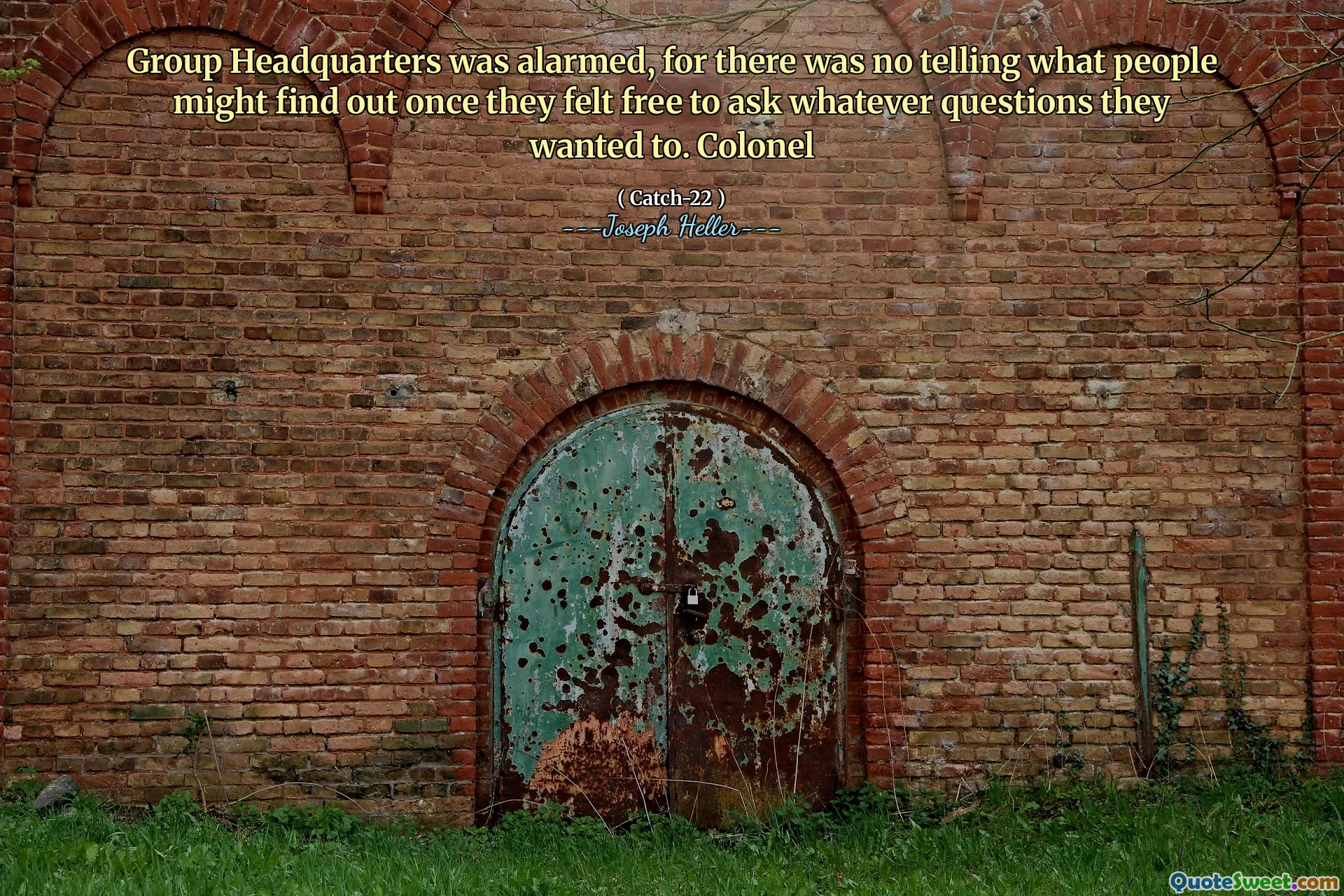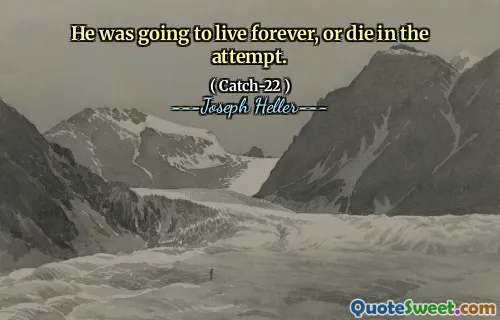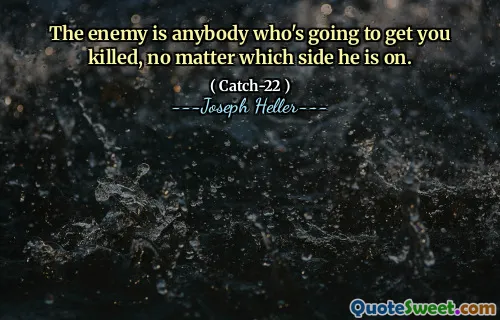
Group Headquarters was alarmed, for there was no telling what people might find out once they felt free to ask whatever questions they wanted to. Colonel
In Joseph Heller's novel "Catch-22," the leadership at Group Headquarters is deeply concerned about the potential consequences of granting people the freedom to ask questions. The anxiety stems from the unpredictable nature of human curiosity, which could lead to revelations that might destabilize their control or expose uncomfortable truths. This uncertainty reflects the broader themes of the book, where bureaucracy and the absurdity of war create a complex environment for the characters.
This concern highlights the tension between authority and individual inquiry, emphasizing how those in power often prefer to keep the status quo intact. By restricting questions, they aim to maintain their grip on information and prevent dissent. Heller's portrayal of this dynamic underscores the absurdity of their fears and illustrates the lengths to which institutions will go to avoid scrutiny.











